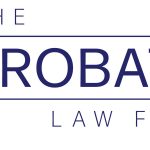Many people mistakenly believe that estate planning solely involves creating a will or trust to pass on assets. However, estate planning encompasses a wide range of elements beyond just these documents. It is a crucial process that allows individuals to make important decisions about their belongings and beneficiaries.
Contrary to popular belief, estate planning is not exclusive to the wealthy. It is a necessary step for anyone looking to ensure their assets are distributed according to their wishes after their passing. This article aims to provide an overview of the key components that make up an estate plan, emphasizing its importance for individuals of all financial backgrounds.
Understanding Estate Planning
Estate planning involves legally documenting the distribution of one’s assets to designated individuals or organizations. The primary goal of estate planning is to safeguard beneficiaries and assets from potential disputes or uncertainties.
Essential Elements of Estate Planning
Outlined below are some critical components that should be included in any comprehensive estate plan:
Wills or Trusts
A will or trust is a fundamental aspect of estate planning, regardless of the size of one’s estate. These documents outline how assets should be distributed upon the individual’s passing, helping to minimize estate taxes and avoid legal complications. It is crucial to carefully draft these documents to prevent confusion and disputes among family members.
Durable Power of Attorney
Designating a power of attorney is essential for individuals to ensure that their interests are protected in the event of incapacity. By appointing a trusted individual to make decisions on their behalf, individuals can avoid potential court interventions that may not align with their wishes.
Beneficiaries
Choosing appropriate beneficiaries for insurance policies and savings accounts is vital, as these assets typically pass outside of a will. Failing to designate beneficiaries can result in court intervention, leading to outcomes that may not align with the individual’s intentions. It is crucial to select beneficiaries carefully and ensure they meet legal requirements.
Letter of Intent
A letter of intent can provide valuable guidance to beneficiaries regarding the distribution of assets and possessions. While not legally binding, this document conveys the individual’s wishes and can help prevent misunderstandings among family members during the estate settlement process.
Healthcare Proxy
Granting a healthcare proxy allows a trusted individual to make medical decisions on behalf of the individual if they become incapacitated. It is essential to choose someone who can be relied upon to act in the individual’s best interests and make informed healthcare decisions.
Key Considerations
- Estate planning is not limited to the wealthy; it is a critical process for individuals of all financial backgrounds.
- Proper documentation is essential to avoid potential legal challenges and ensure assets are distributed according to the individual’s wishes.
- Estate planning allows family members or appointed representatives to carry out the individual’s wishes in the event of their incapacity.
In Conclusion
Establishing an estate plan is a vital step to protect loved ones and preserve one’s legacy. By outlining preferences for asset distribution and beneficiary designations, individuals can ensure their wishes are honored after their passing. This article aims to provide a comprehensive overview of estate planning and its significance in securing one’s financial future.
The post What Does an Estate Plan Include? appeared first on locallawyerny.com.
rnrn
What Does an Estate Plan Include?
When it comes to planning for the future, having an estate plan in place is essential. An estate plan is a set of legal documents that outline how you want your assets to be distributed after your passing. It also includes important instructions for your medical care and financial affairs in the event you become incapacitated. Here is a breakdown of what an estate plan typically includes:
Will
A will is a legal document that specifies how you want your assets to be distributed upon your death. It allows you to name beneficiaries, designate guardians for minors, and outline any specific wishes you may have. A will is a crucial component of an estate plan and ensures that your wishes are carried out as intended.
Trust
A trust is another important tool in estate planning, especially for individuals with significant assets or complex family situations. A trust allows you to transfer assets to beneficiaries while avoiding probate, minimizing estate taxes, and providing control over how and when assets are distributed.
Advance Directive
Also known as a living will, an advance directive outlines your wishes for medical care if you are unable to communicate or make decisions for yourself. It includes instructions on life-sustaining treatments, organ donation preferences, and appoints a healthcare proxy to make healthcare decisions on your behalf.
Power of Attorney
A power of attorney document grants someone the legal authority to act on your behalf in financial or legal matters if you are unable to do so yourself. This ensures that your affairs are managed according to your wishes in the event of incapacity.
Beneficiary Designations
Beneficiary designations are often used for assets such as retirement accounts, life insurance policies, and annuities. These designations allow you to specify who will receive these assets upon your death, bypassing probate and ensuring a smooth transfer of wealth to your chosen beneficiaries.
Letter of Intent
A letter of intent is a non-binding document that provides guidance and instructions to your heirs on how you would like your personal and digital assets to be managed after your passing. It can include information on funeral arrangements, sentimental items, and important passwords or login details.
Asset Inventory
An asset inventory is a comprehensive list of all your assets, including real estate, bank accounts, investments, and personal property. This document helps ensure that nothing is overlooked or forgotten during the estate administration process and simplifies the distribution of your assets to beneficiaries.
Table: Benefits of an Estate Plan
| Benefit | Description |
|---|---|
| Control | Allows you to dictate how your assets are distributed. |
| Probate Avoidance | Can help minimize costs and time delays associated with probate. |
| Privacy | Avoids the public nature of probate proceedings. |
| Protection | Protects assets from creditors and legal challenges. |
| Peace of Mind | Provides reassurance that your wishes will be carried out. |
Practical Tips for Estate Planning
- Review and update your estate plan regularly to reflect any changes in your life circumstances or financial situation.
- Consult with a knowledgeable estate planning attorney to ensure your documents are legally sound and comprehensive.
- Communicate your wishes with your loved ones to avoid conflicts and misunderstandings after your passing.
- Consider the impact of estate taxes and explore strategies to minimize tax liabilities for your heirs.
By creating a well-rounded estate plan that addresses all aspects of your financial and personal affairs, you can ensure that your loved ones are taken care of and your legacy is preserved according to your wishes.
The post What Does an Estate Plan Include? appeared first on lawyer.bet.









